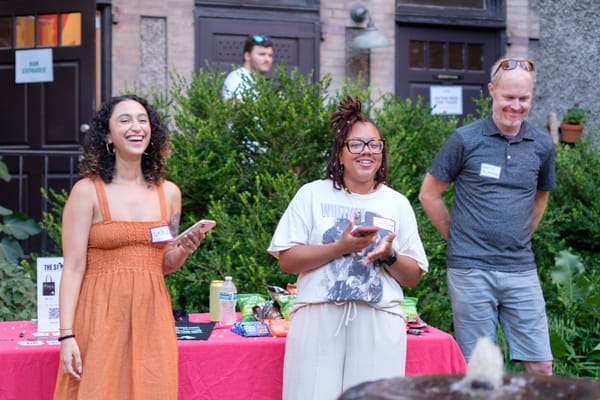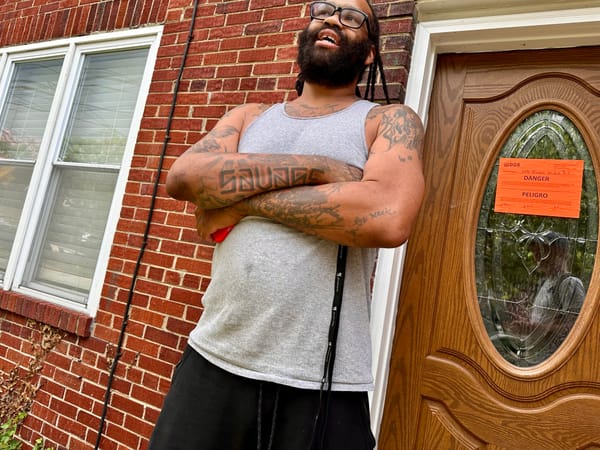In Congressional lobbying blitz, some D.C. residents were told to contact representatives they don’t have
With no voting representation, residents struggle to be heard as the city faces the potential for devastating budget cuts
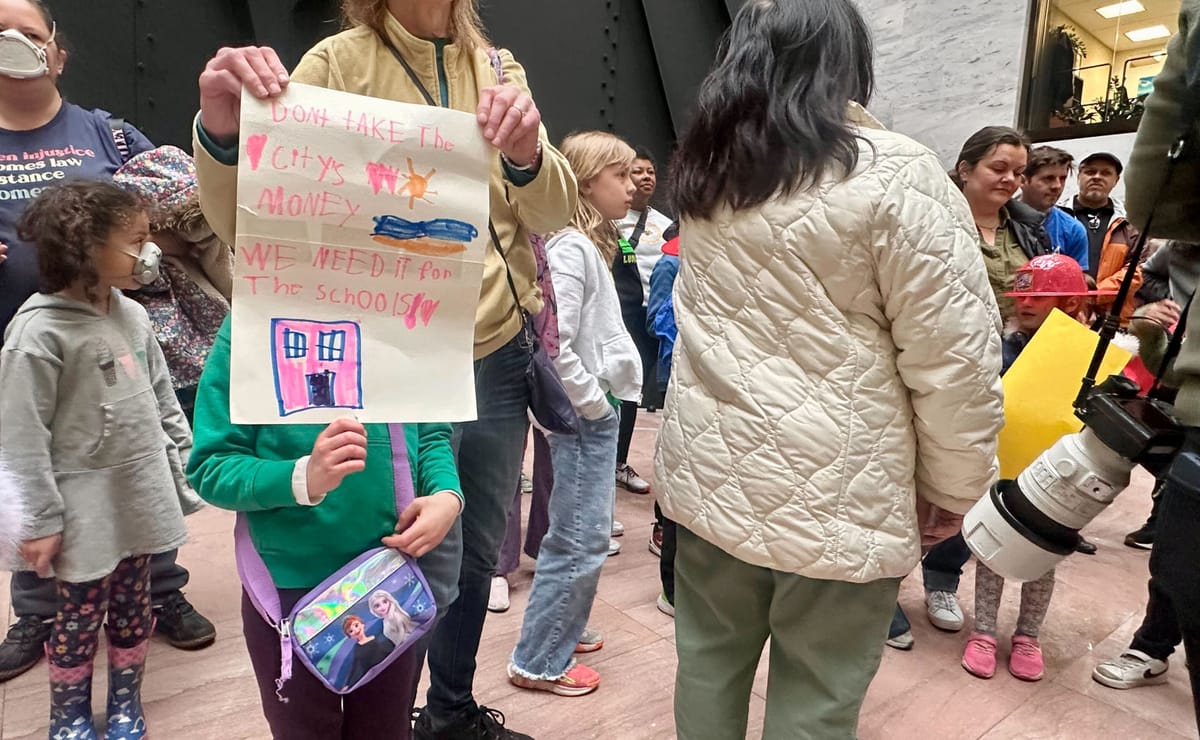
D.C. resident Meriah Burke-Raines started calling House offices earlier this week with one goal: urge members to reject a provision of the federal spending bill that would slash the city’s local budget.
Instead, she got a harsh reminder of one of the indignities of living in D.C.
“I just started going through and calling as many offices as I could. I called about 15. One of them at one point said you should be calling your representative. And another one, a staffer for a Democrat, also said you should be calling your representative,” she tells The 51st. “I pushed back and said, ‘We don’t have one.’”
Whether it’s about declaring war or confirming Supreme Court justices, the directive to call your senator or representative is the currency of American democratic engagement. But for D.C.’s 700,000 residents, who live in the shadow of the U.S. Capitol, it’s not worth much – the city has no voting representation in either the House or Senate, after all. (It’s on our license plate, people!)
“It’s kind of dehumanizing,” says Burke-Raines, a Ward 5 resident. “It’s frustrating and a little demoralizing.”
“A little demoralizing” could probably be squeezed onto D.C.’s license plate, honestly. Residents periodically have to deal with dropdown menus that don’t include D.C. as a state, opting instead for Maryland or Virginia. And a few years ago, D.C. had to omit “District of Columbia” from its driver licenses because some TSA workers didn’t recognize it as, you know, a real place. But that Burke-Raines was told to call a voting representative she does not have given what happened on the Hill this week is, well, a little on the nose.
On Tuesday, the House passed a stopgap federal spending bill that would also slash more than $1 billion from D.C.’s local budget, which city officials say could prompt service cuts and layoffs. The bill is now in the Senate’s hands, and on Wednesday hundreds of D.C. residents took part in an in-person lobbying blitz to urge senators to amend the bill – or vote it down.
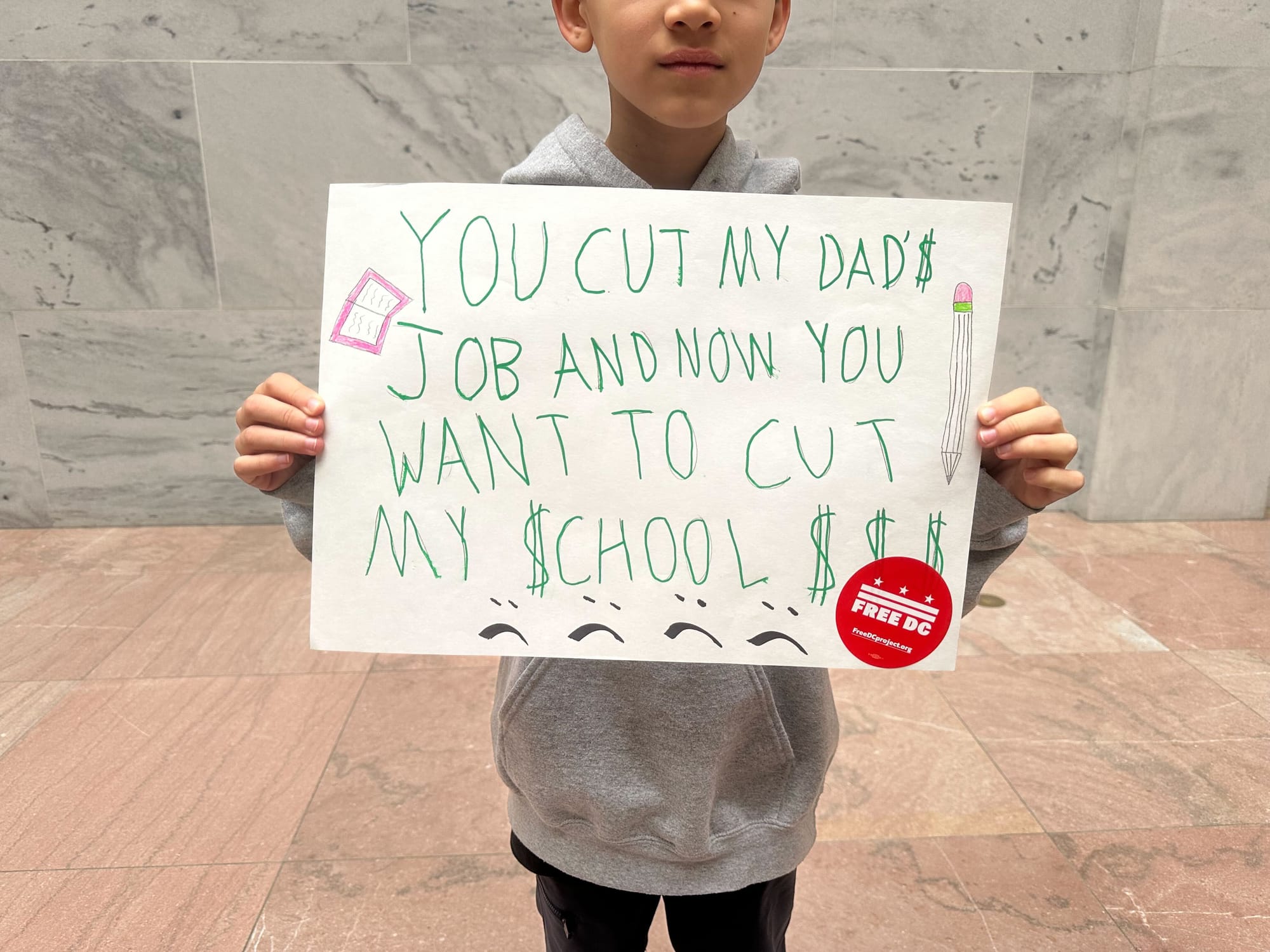
“A lot of the senators were surprised to learn about this. They genuinely did not know it was in the House version of the bill. It was very eye-opening for them,” says Alex Dodds, an organizer with Free DC, which coordinated visits for more than 300 residents to 45 offices on Wednesday.
Residents were joined by at least two D.C. councilmembers yesterday and today parents, teachers, and union members joined in on the action.
That, of course, is a perk of living in D.C. – Congress is, at most, a few Metro stops away. But for those residents who tried to share their opinions on the spending bill virtually, some ran into similar issues as Burke-Raines.
“I would like to share with you that it is a longstanding courtesy between members of Congress that each elected official be allowed to exclusively address his or her own constituents’ questions, concerns and requests,” came an automated response from the contact form on the website of Sen. Angus King’s (I-Maine) office, which was shared with The 51st by a local resident.
“Thank you for contacting my office, and for taking the time to care about your community and your country. Because you do not live in Michigan, please direct your request to your home state U.S. Senators for their response,” offered the office of Sen. Elissa Slotkin (D-Michigan).
Sen. Mark Kelly’s (D-Arizona) office was more succinct: “As you are not from Arizona, I encourage you to reach out to your senators to share your concerns.”
Harsh? Maybe. But some professional advocates actually strongly advise only calling the members of Congress who represent you. “Calling Members of Congress that are not yours is actually counterproductive to successfully deploying constituent power,” says Indivisible, a progressive group. “The only Members of Congress you should be calling are YOUR two Senators and YOUR Representative in the House. There are no exceptions.”
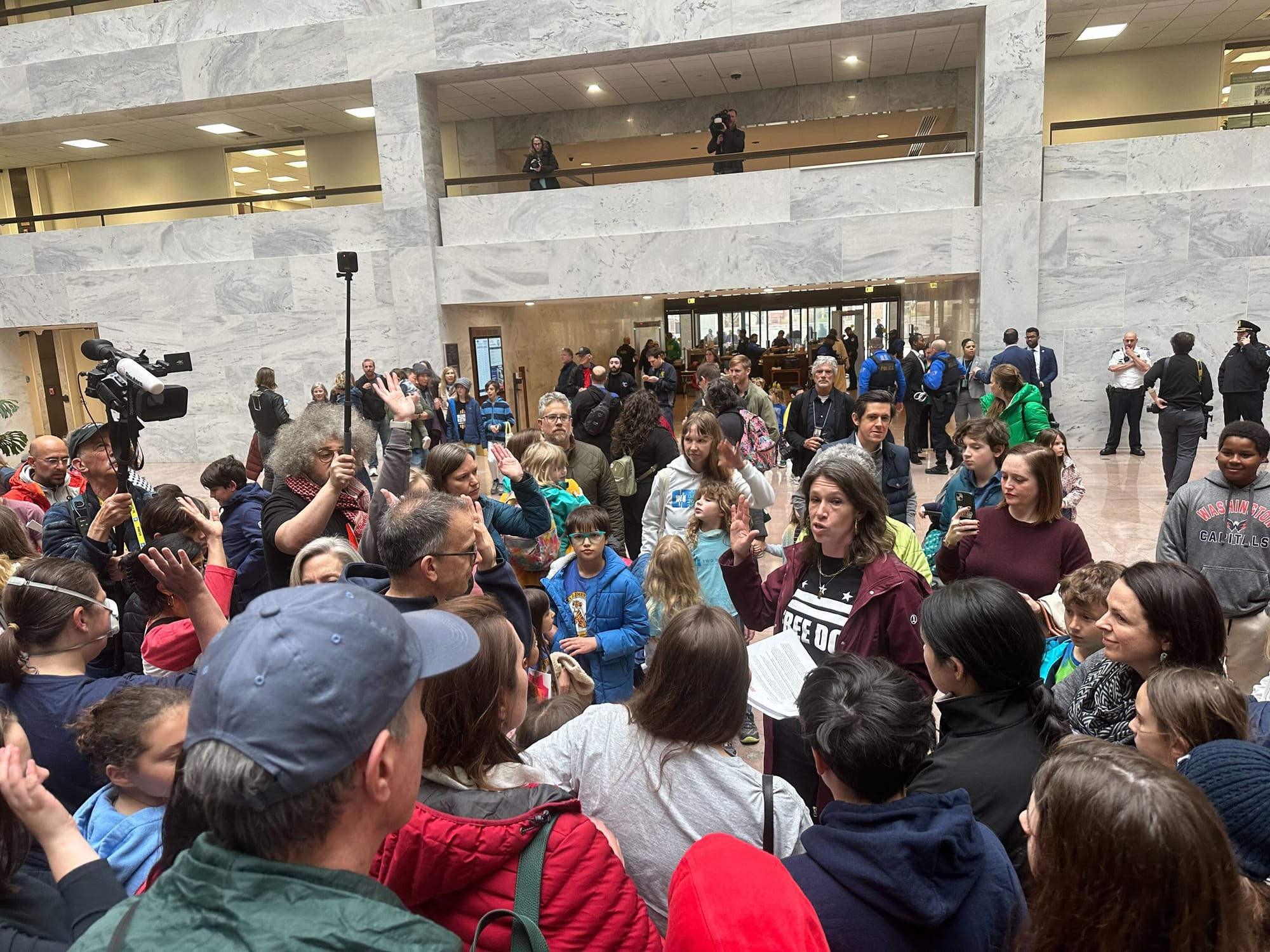
Some D.C. residents have crafted a workaround: they’ve been asking their friends in the 50 states to call their representatives on the city’s behalf. “Do me and the 700,000 Americans (many of them who have recently not only been fired or laid off, but had their careers completely destroyed by the current regime) who call our nation's capital home a favor and CALL YOUR SENATORS TODAY and demand that they respect our rights,” one wrote on Facebook.
Still, the city’s unique situation produces something of a political quandary: If D.C. residents have no congressional representatives of their own, shouldn’t every representative be theirs – even more so given the broad power Congress has over D.C.? Supporters of the status quo have long argued as much, saying that D.C. residents are well-served since they are technically represented by all 535 members of Congress.
“Those who value the true interests of the District should defend the existing arrangement, which promotes the collective responsibility of Congress to preserve the welfare of the federal city,” wrote the conservative Heritage Foundation in 2009, adding that giving D.C. its own representative and senators would deny it the “congressional patronage” it currently enjoys.
Of course, if D.C. residents get patronage, they may not be feeling it this week. City officials have warned that the congressional spending bill could upend local services like schools and public safety – all while producing no federal savings. Schools could lose more than $350 million, police some $67 million, D.C. Water $51 million, and firefighters $42 million. Some Senate Democrats – including Maryland’s Sen. Angela Alsobrooks and Chris Van Hollen – are pushing to amend the bill to clarify that D.C.’s local spending will be left alone. But the D.C.-specific provision also caught others off guard.
“That was not a provision that was in the Senate bill, or anything that we advocated for,” said Sen. Susan Collins (R-Maine) to a Huffington Post reporter on Wednesday. “It came as a surprise to me, and explains why the mayor has called me.”
Wait, the mayor called a senator from another state – and got through? Bravo.


